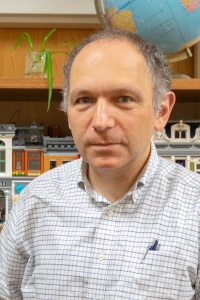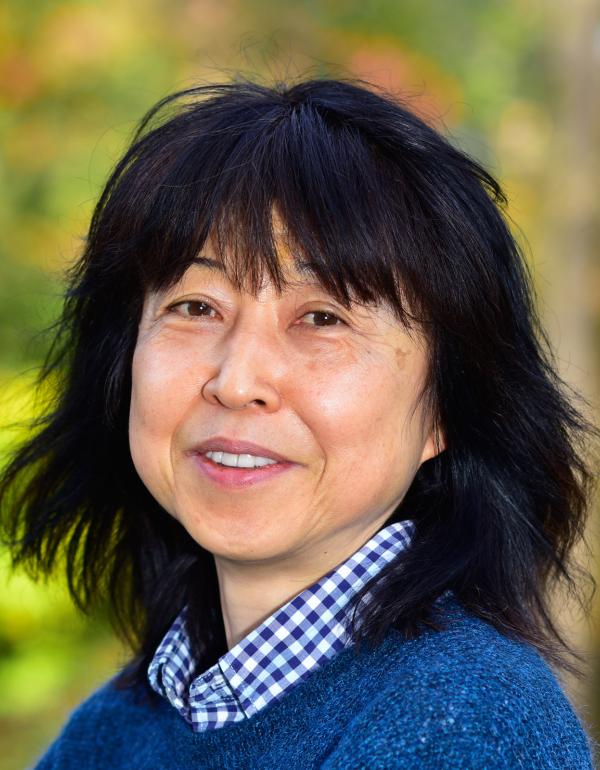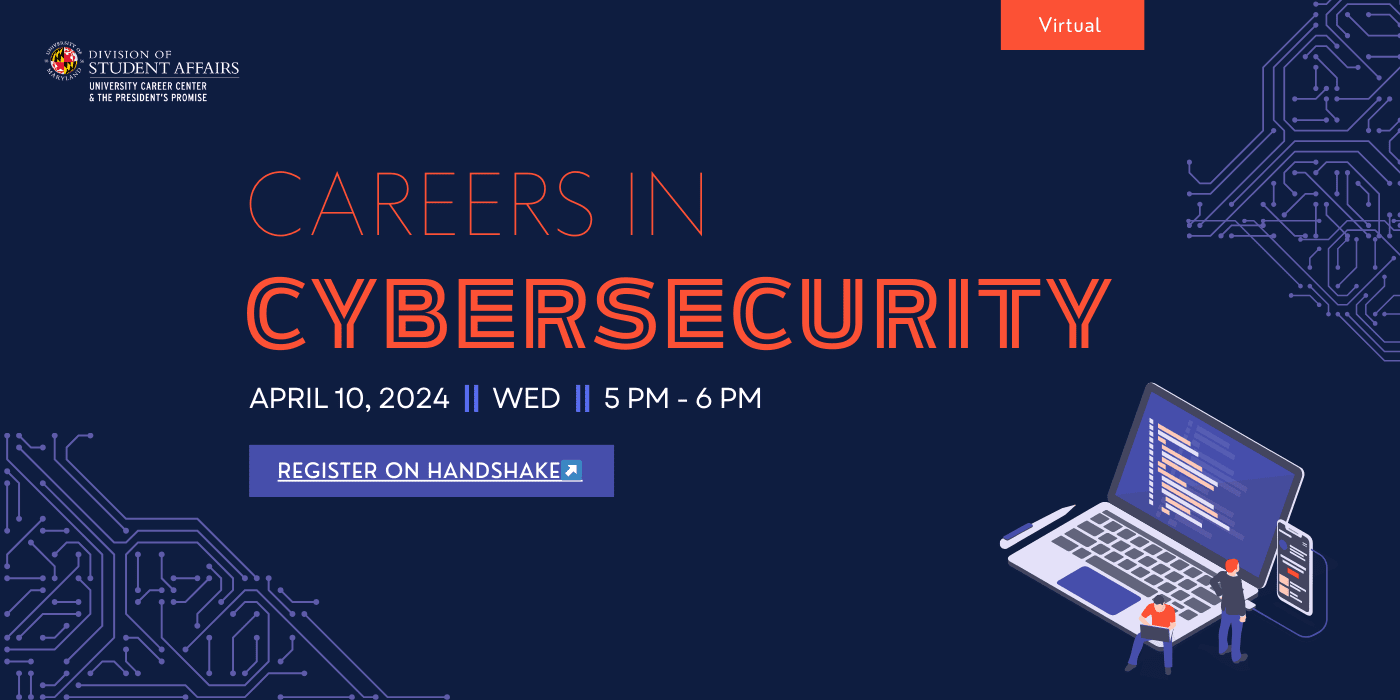|


Dr. Leonid Koralov
Professor, Associate Chair for Graduate Studies, Department of Mathematics
 Recent graduates seeking a career in academia are finding themselves at a crossroads with unique challenges as well as opportunities afforded by current trends in higher education. The American Mathematical Society reports that the number of mathematics PhDs awarded in the United States has more than doubled in the last two decades, with awarded PhDs in Applied Mathematics and Statistics growing by 40%. With such a high concentration of qualified postdoctoral candidates, what will help you stand out from the crowd? Recent graduates seeking a career in academia are finding themselves at a crossroads with unique challenges as well as opportunities afforded by current trends in higher education. The American Mathematical Society reports that the number of mathematics PhDs awarded in the United States has more than doubled in the last two decades, with awarded PhDs in Applied Mathematics and Statistics growing by 40%. With such a high concentration of qualified postdoctoral candidates, what will help you stand out from the crowd?
It is important to recognize that colleges and universities, particularly in the United States, vary greatly in size and structure. The institutional focus of an R1 university is going to have different publishing, teaching, and research expectations from, say, a private liberal arts college. It is important that you think critically about what parts of academia bring you satisfaction. Do you thrive while leading a classroom? Do you relish the research process? Understanding your own strengths can help you navigate where you send your professional applications.
In terms of industry careers, I recommend exploring the online boot camp offerings from the Erdös Institute and INMAS. Please see the Math Graduate Office to learn more about these opportunities. I also recommend speaking with MATH/STAT/AMSC alumni during the alumni panels offered throughout the academic year to gain perspective on how others have made the jump from graduate school to industry.
I cannot stress enough the importance of applying for a large number of academic positions. As mathematicians, you will find that job searching can be a numbers game. Additionally, you must be mindful of the application deadlines for postdoctoral positions. It is never too early to start exploring what is out there and when you need to apply. Maintaining some sort of organizational database for yourself is vital to track when your applications are due and what materials you need to submit.
Most importantly, you should initiate a conversation with your academic advisor about your career goals well ahead of the time when you need to apply. Your advisor can help expand your professional network by introducing you to their colleagues outside of the University of Maryland. Such connections can help you get your foot in the door as you step into the world of academia and beyond.

|
 A Conversation with Dr. Kayo Ide A Conversation with Dr. Kayo Ide
Associate Professor of Atmospheric & Oceanic Science, ESSIC, IPST, and Department of Mathematics

What inspired you to pursue a career in academia?
First, academia has always been “natural” to me. Growing up in Japan when expectations for a woman’s career were very different, I was fortunate to accidentally find myself in an academic environment that let me be who I was and do what I wanted. Second, my graduate school in the US taught me the joy of pursuing excellence. Third, my graduate school was a perfect environment to pursue cross- and inter-disciplinary research, which is my passion.
What specific steps did you take to prepare for and pursue a career in academia?
To pursue a career in academia, we must be experts in both teaching and research and be able to find the balance between them. Although I didn’t know it back then, taking two specific steps really helped me. First, on the academic and teaching/learning side, both my undergraduate and graduate schools considered class performance on any topic very seriously. It helped me build a strong background and perseverance. Next, on the research and practical side, when I was a postdoctoral fellow, my advisor had a large research group, and he was very busy with many other things. So, I worked as his ‘right-hand man’, which turned out to be great professional training. So be open! You never know.
What are the most rewarding aspects of being a professor, and what are some of the challenges?
As a professor, I get to see my students grow. It is truly rewarding. Also being a professor contributing inter/cross-disciplinary research, I get to see my ideas and techniques used in real, operational settings. It really is exciting!
Can you share any advice for students who aspire to become professors?
Enjoy what you do, follow your passion. Keep your eyes open, keep your curiosity open. Work with your students and colleagues. Pursue excellence.
What are some important skills and qualities that aspiring professors should cultivate as they prepare for a career in academia?
Likely your career will span a long period of time. Our knowledge will advance, sometimes very quickly and quantum leap to the next stage. So, we should always be forward looking on both research and teaching.
What is something Math Department students might not know about you?
Although I am a Math faculty, I have no ‘formal’ Math degree. I am an Aeronautics engineer according to my degree, BS, MS, and PhD. But again, my undergraduate and graduate schools made sure every student knew and can use Math. So, enjoy what is in front of you and also what you love to do!

|
|
Embark on an epic quest for professional growth with this ultimate career development challenge and a chance to win a mystery bag with goodies worth $100. challenge and a chance to win a mystery bag with goodies worth $100.
Here’s the challenge:
Throughout the spring semester, you’ll choose your adventure by picking from several professional development activities to conquer. Complete 4 PD activities, and you’ll earn one raffle entry for the mystery bag. Achieve an impressive feat by completing 5 activities, and you’ll double your chances with two raffle entries! Feeling unstoppable? Take on all 6 activities, and you’ll earn three raffle entries! Your journey awaits!
Download the Quest!

| Resume Rx: One-on-One Review Sessions
Monday, April 8th, 11am - 12pm, MATH Room 3103 (AMSC office)
One-on-one resume reviews with staff from the University Career Center and Graduate School Professional Development Office. Open to all AMSC, Math, & Stat grad students. Brunch will be provided.
Students must sign up for one of the six 20-minute slots.
FULL
|
Internship Insights
Wednesday, April 17th, 3:30pm-4:30pm, MATH Room 1310
Want to do an internship but don't know where to start? At this event, you’ll gain valuable insights as fellow Math Department grad students share their internship experiences. Open to all AMSC, Math, & Stat grad students. Drinks & snacks provided.
RSVP by emailing .
|


Graduate School Professional & Career Development
 The Graduate School's Career and Professional Development services offer a wealth of invaluable resources to graduate students in preparation for a wide range of careers. The Graduate School's Career and Professional Development services offer a wealth of invaluable resources to graduate students in preparation for a wide range of careers.
Check them out here.
See the services and resources they offer below:
|

Dr. Zeynep Kaçar, STAT '23
Could you briefly describe your current role and responsibilities?
As a professorial lecturer at the American University in DC, my role involves teaching courses in statistics and data science, conducting research in biostatistics and advising students.
How have your career aspirations changed, or remained the same, since your time in the UMD Math Department?
Since my time in the PhD Mathematical Statistics program, my career aspirations have evolved to focus on making significant contributions to the field through teaching, research, and mentorship. I aspire to continue advancing my expertise in statistical theory and its applications while also inspiring and guiding the next generation of statisticians.
What advice would you give to current students to find, secure, and thrive in an academic career?
To current students aspiring for academic careers, I would recommend pursuing research opportunities early on, building a strong publication record, actively engaging in professional conferences and seminars, seeking mentorship from experienced academics, and continuously updating their skills to stay current of advancements in statistics and data science.
If you could go back, what might you change about your time as a mathematics student and your career path? Reflecting on my time as a mathematics student and my career path, I might have sought out more interdisciplinary collaborations to explore the applications of statistical methods in various fields. Additionally, I would have prioritized networking and establishing connections within the academic community earlier in my career.
How do you continue to develop professionally and stay competitive in your field?
I continue to develop professionally by staying engaged in ongoing research projects, attending conferences and workshops relevant to my areas of expertise, collaborating with colleagues on interdisciplinary research initiatives, and actively seeking opportunities for professional growth and advancement within academia.
What do you enjoy most about your current job, and what are your future aspirations?
What I enjoy most about my current job is the opportunity to inspire students and instill in them a passion for statistics and data science. My future aspirations include further enhancing my teaching methods, expanding my research portfolio, and contributing to the development of innovative statistical methodologies that address real-world challenges. Additionally, I aspire to take on leadership roles within my department and make meaningful contributions to the academic community at large.


 Interested in Working in Cybersecurity? Join us! Interested in Working in Cybersecurity? Join us!
Attend this panel on April 10th, 2024 (Wed) to learn from and network directly with professionals working in cybersecurity. Our panelists will share their career paths, past educational experiences, and provide tips for entering the field.
Register on Handshake

Math Jobs Page
Access the math jobs listings by clicking the link here.
|






 Recent graduates seeking a career in academia are finding themselves at a crossroads with unique challenges as well as opportunities afforded by current trends in higher education. The
Recent graduates seeking a career in academia are finding themselves at a crossroads with unique challenges as well as opportunities afforded by current trends in higher education. The 



 challenge and a chance to win a mystery bag with goodies worth $100.
challenge and a chance to win a mystery bag with goodies worth $100. 


 The Graduate School's Career and Professional Development services offer a wealth of invaluable resources to graduate students in preparation for a wide range of careers.
The Graduate School's Career and Professional Development services offer a wealth of invaluable resources to graduate students in preparation for a wide range of careers.



